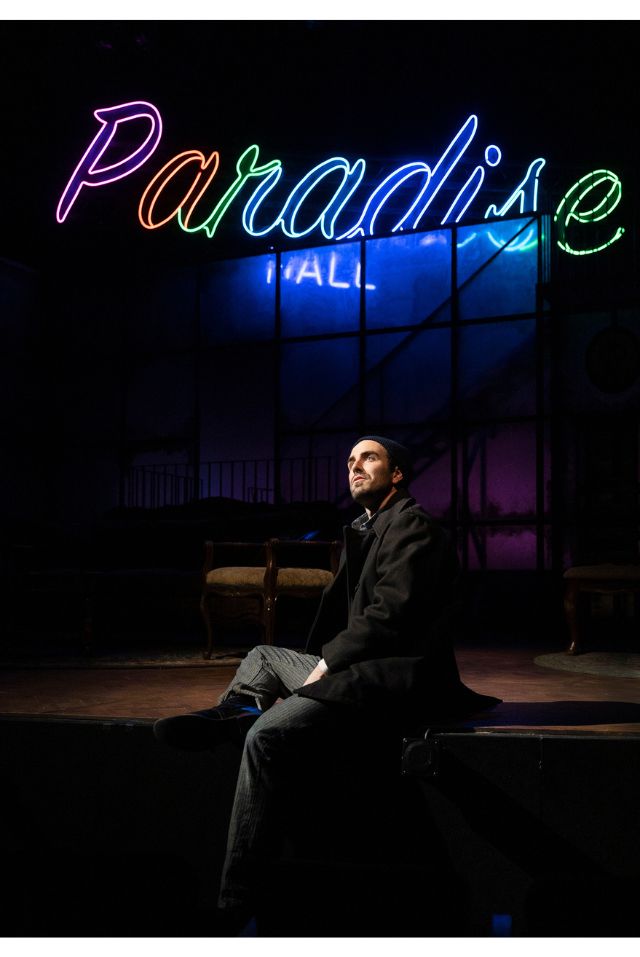
Wingfield Toxic Traits
In an ever-conscious world of mental health and self-care, many people in our generation are trained to spot toxic behaviors and encouraged to avoid them. Unfortunately for the Wingfield family, these sharp skills were hard to come by. Left and right throughout Tennessee Williams’ The Glass Menagerie, we see how the characters miss opportunities to alleviate the burden of their struggles in healthy ways. Here’s a breakdown of the characters and their toxic tendencies.
Tom Wingfield
It’s not clear when Tom’s father left their family, but it is clear that Tom was thrust into the father-figure/man-of-the-house role. While that part of his life isn’t necessarily his fault, his method of coping – drinking and isolating himself from his family – is less than ideal according to several psychological experts. In fact, consuming alcohol and withdrawing from loved ones are two of the most harmful things that a person can do to cope with stress.
Using alcohol as a coping mechanism after each bout of stress can help in the short term, but long term it can worsen depression, create addiction, and lead to other serious health problems.
And while it’s good to take a breather from friends and family now and then, it is important to be around people who you can decompress with after a bout of stress. As much as we would like to believe we are strong enough to deal with our problems on our own, we are innately designed to rely on other humans for emotional support. Take away that support and your stress could become more severe.
Amanda Wingfield
Wanting the best for your children and wanting to be involved in their lives are two highly admired desires in parenthood. However, when those aspirations turn into infatuations, it can lead to the exact opposite results. Known as one of the most domineering, controlling, and overbearing characters of all time, Amanda certainly has some toxic behaviors of her own.
Her lack of self-awareness often leads her to gaslight her children with no remorse. Her optimism detracts from reality and creates unrealistic expectations of her children. And the missed opportunities of her past push her to project her goals and dreams onto her children. She truly conforms to the trope of “Mother knows best”. She makes the assumption that her children want the same things in life that she wanted, so there’s no reason to discuss matters otherwise. She’s drawn up a plan of success in her mind, and when her children derail from that plan, she lays on a thick layer of guilt. Evidently, no one taught Amanda healthy patterns of communication.
Communication experts often discuss how being an engaged listener changes the way you respond to the other person in the conversation. It’s not enough to remain silent. Being an engaged listener means leaving aside judgmental thoughts you might have, asking clarifying questions, and giving the speaker your full attention.
If Amanda had applied these simple practices to her parenting, she might grow to understand her children on a deeper level and use her ambition and drive more effectively.
Laura Wingfield
Laura Wingfield, more than anyone else, is the result of what toxic traits can do to a person. Treated as “the Golden Child,” Laura received an excessive amount of pressure and attention from her mother. Amanda’s one-sided thinking shuts out Laura’s voice. For months Laura goes out for hours, much like her brother, simply shooting the breeze rather than attending her college courses. She doesn’t admit to her mother the truth about her college experience for fear of not living up to her expectations.
Licensed psychotherapist Terri Cole has said: “The golden child feels pressure from the parents: If they want to continue to receive the love, attention, and affection that is showered on them, they have to continue to achieve and behave in a way that the parents dictate.
“The adults in their life are constantly violating any healthy boundary that should be in place by forcing their feelings and desires to be the focus of the child’s life,” Cole explains.
This leaves the dreams and hopes of the child buried. And if they are lucky enough to uncover them, they might not even know how to go about pursuing them without the guidance of their parents.
We might do well to recognize moments in which we may be doing harmful things to the people we love most. The best intentions have the ability to blind us from the reality of our actions and words. Being self-aware and allowing others to have a voice in any relationship creates opportunities for more understanding and therefore more patience and love. Now more than ever, we could use some more of that.
We hope you’ll learn from the mistakes of these beautifully tragic characters as you witness Tennessee Williams’ The Glass Menagerie at Arizona Theatre Company.